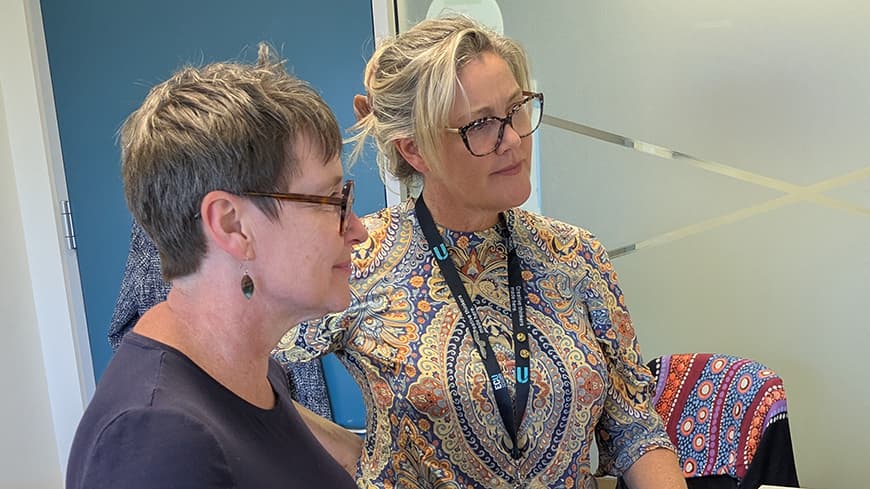Midwife researchers from Edith Cowan University's (ECU) School of Nursing and Midwifery have established a world-first initiative that aims to help resolve the midwifery workforce crisis.
The Attractive Midwifery Practice and Learning Environments Research and Innovation Laboratory - or AMPLE Lab - will bring together midwife researchers from ECU as well as external local, national and international associates, with the shared vision of promoting staff retention and increasing workforce capacity in this vital profession.
Led by internationally recognised and multi award-winning midwifery workforce researcher Professor Sara Bayes, the online collaborative lab will bring the team’s current and future projects and project partners together in a dedicated virtual space.
"The AMPLE Lab's purview is essentially to help keep midwives in midwifery," Professor Bayes said.
"Its emblem is a cornucopia, or horn of plenty, filled with midwives. This represents the Lab's vision, which is that there will be at least 1 million more midwives worldwide by 2030."
 Professor Sara Bayes, who is leading the AMPLE Lab initiative, with Dr Kate Buchanan.
Professor Sara Bayes, who is leading the AMPLE Lab initiative, with Dr Kate Buchanan.
Professor Bayes said midwives are trusted health care professionals who can provide up to 90 per cent of sexual, reproductive, maternal, newborn and adolescent health services.
"Disturbingly, however, there is a global shortage of these invaluable health professionals, and the prediction is that the world will need at least 750,000 more midwives if essential sexual and reproductive health care needs are to be met," she said.
"The causes of the shortage are complex, but many are modifiable, including ensuring that the environments in which midwives practice and learn support their needs."
Launched earlier this month on International Day of the Midwife, the initiative has already had an encouraging response, with research groups from across the globe joining the AMPLE Lab.
"So far we have had people from Slovenia, Finland, Belgium, Greece, Spain, Portugal and the United Kingdom," Professor Bayes said.
"This really affirms the need to provide a space for people to come together to continue discovering, testing and implementing solutions to the midwifery workforce crisis."
For more information or to connect with the AMPLE Lab reach out to Professor Sara Bayes.

 The AMPLE Lab has been established to bring together midwife researchers with the shared vision of promoting staff retention and increasing workforce capacity.
The AMPLE Lab has been established to bring together midwife researchers with the shared vision of promoting staff retention and increasing workforce capacity.



